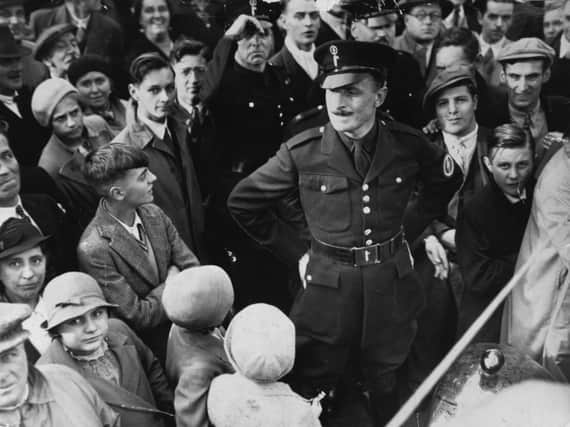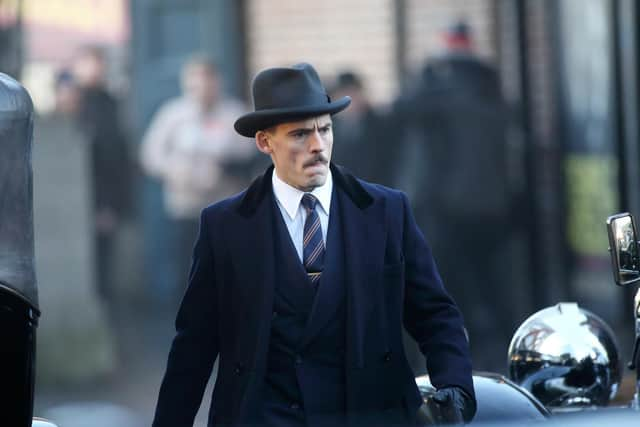Peaky Blinders' fascist villain Oswald Mosley tried to spread far-right message in Leeds - but the city taught him a lesson


As tonight's final episode of the series ends, the gangster and MP's confrontation with the authoritarian - who in real life inherited the title 'Sir' only because of his baronetcy - is likely to come to a head.
Advertisement
Hide AdAdvertisement
Hide AdCoincidentally, late September marks the anniversary of one of the most dramatic political confrontations in the history of Leeds - the Battle of Holbeck Moor - when the far-right demagogue tried spread his message through the city in 1936.


Around 1,000 of the notorious 'Blackshirts' joined British Union of Fascists (BUF) leader Mosley - who was later imprisoned during the Second World War - for a rally.
Inspired by the activities of the Nazis in Germany, the BUF were holding marches and demonstrations across Britain to drum up support.
Industrial Leeds, however, was left-leaning with strong Communist and Labour contingents who were determined to oppose the fascists.
Advertisement
Hide AdAdvertisement
Hide AdCity authorities forbade the BUF to march through the Leylands, a working-class Jewish district on the edge of the centre which was largely demolished as part of slum clearances soon afterwards.
Yet the night before the march, swastikas and slogans were reportedly daubed onto the area's Jewish-owned shops.
The fascists gathered in Calverley Street the next day, from where Mosley marched them to Holbeck Moor.
But it didn't go to plan.
Waiting for them were reportedly around 30,000 Leeds residents, many of them Communist Party members, who had mobilised themselves in local pubs during the previous week.
Advertisement
Hide AdAdvertisement
Hide AdThey began singing the The Red Flag as Mosley took to a stage to begin his speech, and many of the crowd threw stones, at least one of which hit the BUF leader.
Around 40 fascists were injured in the clash, but the BUF were heavily outnumbered and left the moor.
Only three people were arrested, and all were given light sentences.
The Leylands slums were cleared by 1937, as many of the notorious garment sweatshops which had provided employment for poorer members of the Jewish community had shut.
Advertisement
Hide AdAdvertisement
Hide AdMuch of the Jewish community moved north to Chapeltown, where new synagogues and schools were soon built and the community prospered, and in later decades went further north to Moortown and Alwoodley.
Mosley, a baronet and former MP, was imprisoned in 1940 and his party were outlawed once war had broken out.
He was released in 1943, but remained a political exile and moved to France in 1951.